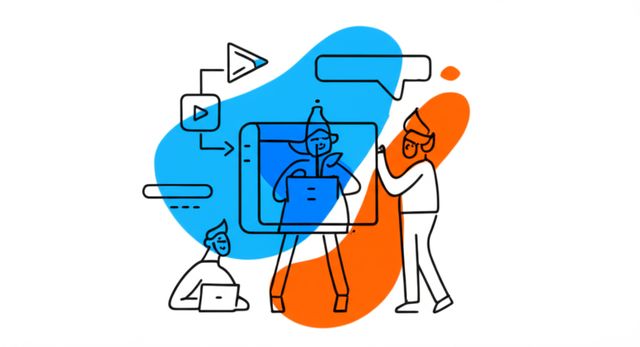React.js
React.js is a free and open-source front-end library for building user interfaces. It is maintained by Facebook and a community of developers. React.js is used to build single-page applications (SPAs) and mobile applications. It is known for its declarative approach to programming, which makes it easy to write code that is maintainable and bug-free.
Benefits of Learning React.js
There are many benefits to learning React.js. Some of the benefits include:
- Increased productivity: React.js uses a declarative approach to programming, which makes it easy to write code that is maintainable and bug-free. This can lead to increased productivity.
- Improved performance: React.js uses a virtual DOM (Document Object Model) to update the UI. This can lead to improved performance, especially for large applications.
- Increased flexibility: React.js is extremely flexible and can be used to build a wide variety of applications. This makes it a valuable skill for developers who want to work on a variety of projects.
What You Can Learn from Online Courses
There are many online courses that can teach you React.js. These courses can teach you the basics of React.js, as well as more advanced topics such as Redux and React Native. Some of the skills and knowledge you can gain from these courses include:
- How to create and use React components
- How to use the React lifecycle methods
- How to use Redux for state management
- How to use React Native to build mobile applications
Are Online Courses Enough?
Online courses can be a helpful tool for learning React.js. However, they are not enough to fully understand this topic. To fully understand React.js, you need to practice building applications with it. You can also learn from other resources, such as books, tutorials, and documentation. There are also certification courses available which can help you show your knowledge and skills.
Careers in React.js
There are many careers that require knowledge of React.js. Some of these careers include:
- Front-end developer: Front-end developers are responsible for the look and feel of a website. They use HTML, CSS, and JavaScript to create user interfaces.
- React developer: React developers are responsible for building and maintaining React applications. They use React.js and other JavaScript libraries to create user interfaces.
- Full-stack developer: Full-stack developers are responsible for both the front-end and back-end of a website. They use a variety of programming languages and technologies to create and maintain websites.


